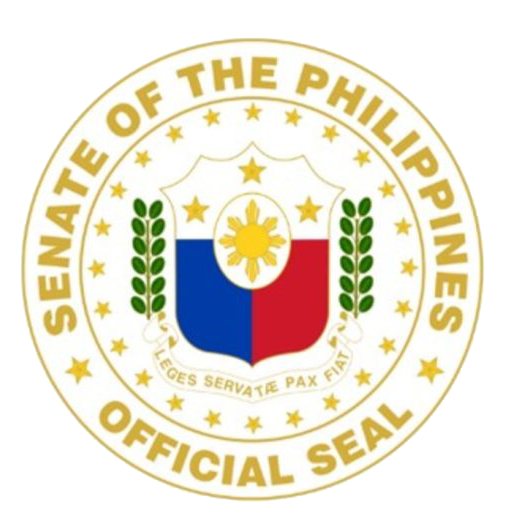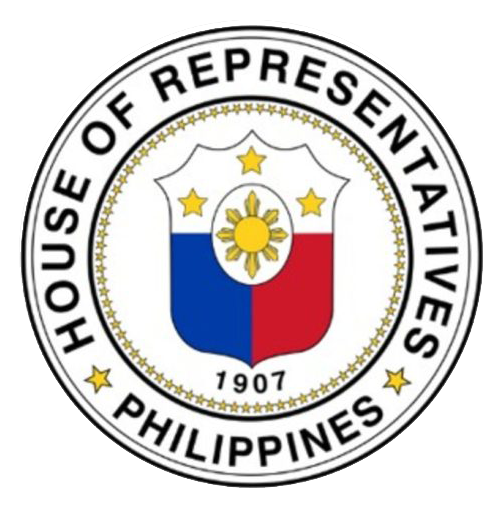Engaging the Public in Participatory National Budget Process
Novel V. Bangsal
19 December 2024
The national government budget serves a number of development objectives, namely: 1) stabilizing the economy; 2) redistributing income, and 3) providing social assistance to vulnerable groups. In addition to being a development tool, the budget is also an instrument for public accountability. By identifying revenue sources and expenditures, the budget enables citizens to see if public funds are being spent for their intended purpose. The transparency of budget information fosters trust between the government and its constituency, resulting to more informed public discourse about fiscal policies and priorities. Thus, this commentary examines how public participation impacts the national budget process, discusses the challenges faced, and explores the potential for improved participation to create a more responsive and accountable government.
Budget reforms on citizen participation
The budget process reflects the power relations between the branches of government in making budget decisions. It is important to note the budget process is divided into four stages, namely: preparation, legislation, execution, and accountability. For instance, budget preparation is the purview of the executive, and budget legislation belongs to Congress. The executive takes the lead again in the execution stage, while the Commission on Audit assumes control over budget accountability. Each stage offers opportunities for engagement between the government and the public in general, following formal rules of the budget legal framework or informal rules based on traditions and exchanges.
Entry points for citizen participation typically occur at multiple stages, especially during budget preparation and legislation. However, opportunities in these stages are often informal and ad hoc in nature. The lack of formal consultations mechanisms suggests that it is quite difficult for the public to directly participate in the budget process, and exert influence towards more responsive and inclusive fiscal policies. To address this gap, several legislative measures have been filed to institutionalize the participation of civil society organizations (CSOs) in the budget process.
Furthermore, the budget process is not only a dynamic system but also a political arena for competing interests. This transactional mode determines who gets what, when, and how the money is spent. However, the real question is whether the politics that largely influence the budget process can lead to desirable fiscal outcomes such as fiscal discipline and efficiency in allocation and operation. Historically, the budget process has been viewed as an unwieldy and exclusive undertaking reserved for government, often resulting in a wide disparity between public spending and the actual needs of the community.
This observation finds credence from the lectures of Dr. Ma. Victoria Raquiza of the UP National College of Public Administration and Governance and Undersecretary Rolando Toledo of the Department of Budget and Management during the CBILLS Thursday Talks at the Development Academy of the Philippines. Dr. Raquiza underlined the sustained engagement between the Social Watch Philippines and members of Philippine Congress through the Alternative Budget Initiative. Moreover, Undersecretary Toledo highlighted major budget reforms since 2010, namely: 1) the Principles of Constructive Engagement with CSOs; and, 2) the Budget Partnership Agreements between agencies and CSOs. On account of these relevant gains, the Philippines has topped other Asian countries in the Open Budget Index on public engagement.
Challenges to citizen participation in the budget process
Despite the progress made, several challenges hinder meaningful citizen participation in the budget process. One of the key barriers is the lack of public awareness and understanding of how government budgets are formulated, implemented, and monitored. While the government is mandated to disclose budget documents, these documents are too complex and technical—not to mention their voluminous sizes, making it hard for ordinary citizens to comprehend nor do these documents reveal enough information as to the authorities’ goals or priorities. Second, access to information is often limited. Bureaucratic red tape impedes the timely dissemination of information, further discouraging citizens to provide feedback on the resource allocation.
Third, corruption and patronage politics pose significant challenges. In some instances, budget decisions may be influenced by political considerations rather than genuine community needs. This practice undermines trust in the process and dissuades citizen engagement. To counter these issues, there must be robust mechanisms for public accountability and budget oversight, ensuring that public funds are spent judiciously and efficiently to deliver desired outcomes.
And fourth, the fragmentation of efforts across different government agencies can impede coordinated citizen engagement. While various departments promote participation, a lack of synergy can lead to confusion and disorganization. Establishing a cohesive approach for citizen engagement helps build consensus around budget decisions.
Role of ICT in facilitating citizen participation
In the digital age, technology adds new dimension to citizen participation in the budget process. Online platforms and mobile applications can facilitate the process of gathering inputs, making it easier for individuals to voice their opinions and monitor budget utilization.
As digital literacy improves, leveraging technology will become more essential in empowering people to take greater control of the budget agenda for deliberation. However, enhancing citizen participation in the budget process involves more than just collecting feedback; it’s about fostering a culture of accountability and shared responsibility. By involving citizens in the decision-making process, the government can better align its fiscal policies with the needs and aspirations of its community.
Social media also plays a pivotal role in raising awareness about budget issues and mobilizing public engagement. Government agencies can use such platforms to disseminate information about the budget process, share updates on public consultations, and encourage citizen participation. By utilizing technology, the government can reach a broader audience and facilitate more inclusive discussions about budget priorities.
Building a Culture of Participation
It is crucial to foster a culture of engagement. Authorities must be willing to listen to and act upon the feedback they receive, creating a feedback loop that reinforces the importance of citizen engagement.
Education and capacity-building initiatives are vital in this regard. By enabling citizens, they can become more effective advocates for their communities. There are a number of activities that can help provide ample spaces for more direct citizen participation, such as:
- Simplifying the budget: Organizations like the Social Watch Philippines can help promote budget literacy and deepen the discourse among citizens, interest groups, and legislators. Congressional budget offices, such as the Congressional Policy and Budget Research Department (CPBRD) simplify the budget through research papers and agency budget reports that analyze budget trends, current allocations, and performance. One of the innovations being implemented by CPBRD is the use of an inter-active web portal that it can manage with partner institutions and CSOs. An important service of the web portal is the provision of a specialized database for tracking pro-poor expenditure items, and the establishment of Virtual Private Network (VPN) service—a special digital communication tunnel that will allow direct exclusive links between CPBRD and its partners.
- Independent critical analysis: The budget analysis reports of the CSOs can augment the research capacity of legislatures, media, and even the Executive. It may provide one of the few sources of specialized data and analysis on the budget’s impact on people experiencing poverty. Budget group analysis can focus on areas such as budget formulation, including macroeconomic and fiscal assumptions that are tackled at the level of the Development Budget Coordinating Committee (DBCC).
- Building accountability: CSOs can assist citizens and the legislature in reinforcing channels of accountability. This may occur, for example, when groups provide accessible information or pursue the findings of the Commission on Audit with relevant interest groups. Ms. Jennifer Imperial from COA and Mr. Sandino J. Soliman from Caucus of Development NGO Networks (CODE-NGO) discussed the importance of building trust between the government and the citizens to increase public awareness and involvement in accountability efforts. Furthermore, Ms. Imperial also introduced the Citizen Participatory Audit, a mechanism by which CSOs worked with COA in conducting performance audits on several government projects.
Conclusion
The state of citizen participation in the national budget process underscores both the progress made and the challenges that persist. While improvements in budget transparency and initiatives have created opportunities for engagement, some barriers hinder the effective participation of the public. By addressing these challenges and implementing further budget reforms, authorities can foster a more inclusive and responsive budget process, leading to better governance and improved outcomes for citizens.
On this note, the DBM should be commended for makingbudget documents more accessible for better citizen engagement. The increasing size of National Expenditure Program (NEP) documents signifies the government’s efforts to make the budget information more transparent. This move intends to provide a more granular and detailed presentation of the budget allocations instead of resorting to lump-sum appropriations. It is a positive step to present budget information in a clear and understandable format, utilizing visual aids, and plain language. This will help demystify the budget process and encourage more citizens to engage in its various stages. Overall, a more engaged public is essential for a thriving democracy, and meaningful participation in the budget process is a crucial step toward achieving desired fiscal outcomes.
References
Bangsal, N. V.(2024).Role of Congress in Achieving Sound Public Fiscal Management. [PowerPoint presentation]. Course on Risk Management on Public Finance.Development Academy of the Philippines.
Congressional Budget and Research Department. (2006). Governing the Philippine Bureaucracy: Issues and Challenges of Legislative Oversight. House of Representatives. https://cpbrd.congress.gov.ph/index.php/2012-06-30-13-06-51/2012-06-30-13-36-52/202-governing-the-philippine-bureaucracy-issues-and-challenges-of-legislative-oversight-congressional-lanning-and-budget-department-house-of-representatives-quezon-city-february
Congressional Budget and Research Department. (2022). A Legislator’s Guide in Analyzing the National Budget (4th Edition). House of Representatives. https://cpbrd.congress.gov.ph/2012-06-30-13-06-51/2012-06-30-13-36-52/1509-csp-62-a-legislator-s-guide-in-analyzing-the-national
Congressional Budget and Research Department. (2024). An Analysis of the President’s Budget for the Fiscal Year 2025 (Budget Brief 2024 No. 2). House of Representatives. https://cpbrd.congress.gov.ph/2012-06-30-13- 06-51/2012-06-30-13-36-49/1784-bb2024-02-an-analysis-of-the-president-s-budget-for-the-fiscal-year-2025
Disclaimer: The views expressed in this article are solely those of the author, and do not necessarily reflect the positions of the House of Representatives, the Senate of the Philippines, or the Development Academy of the Philippines.





